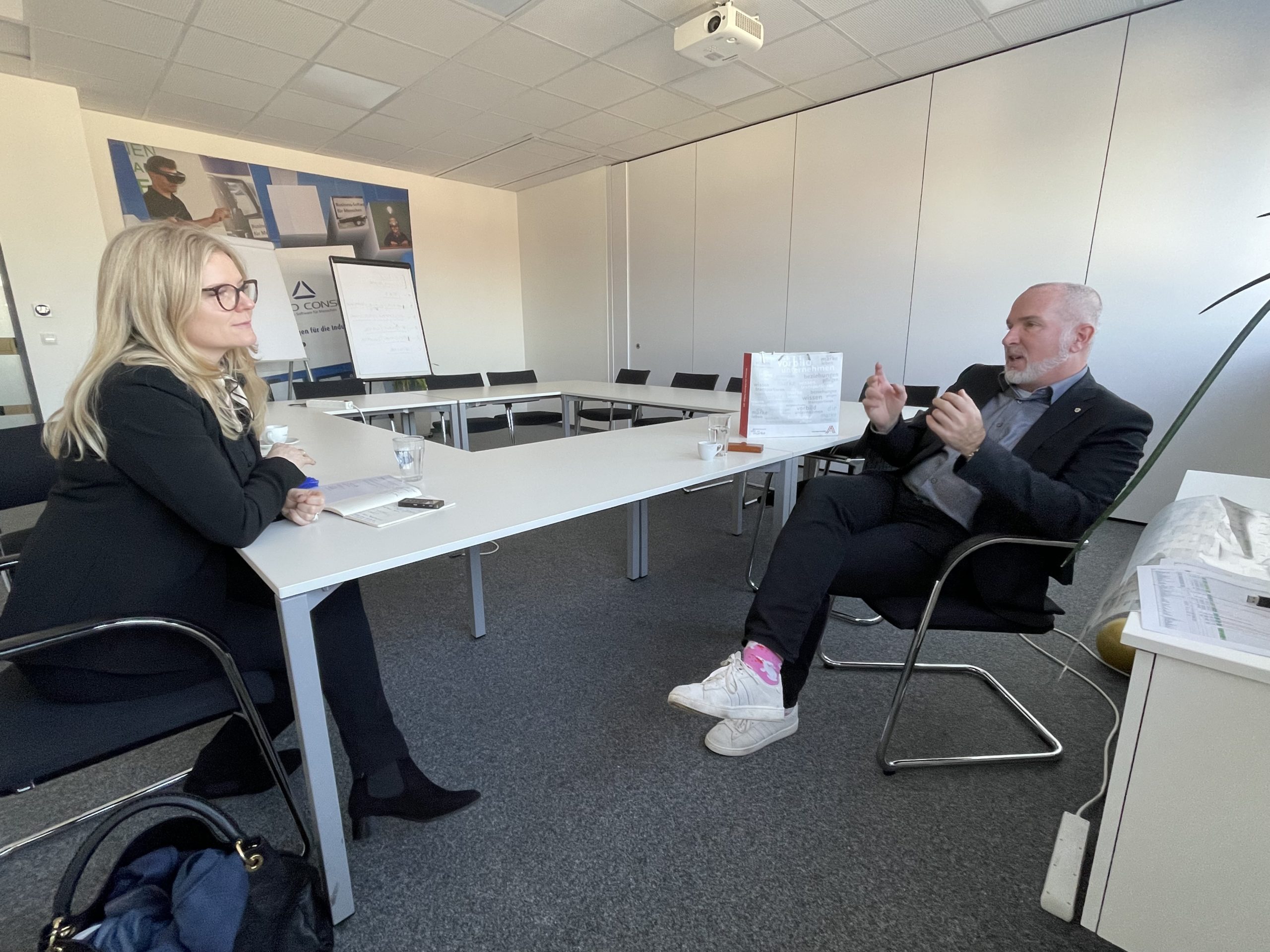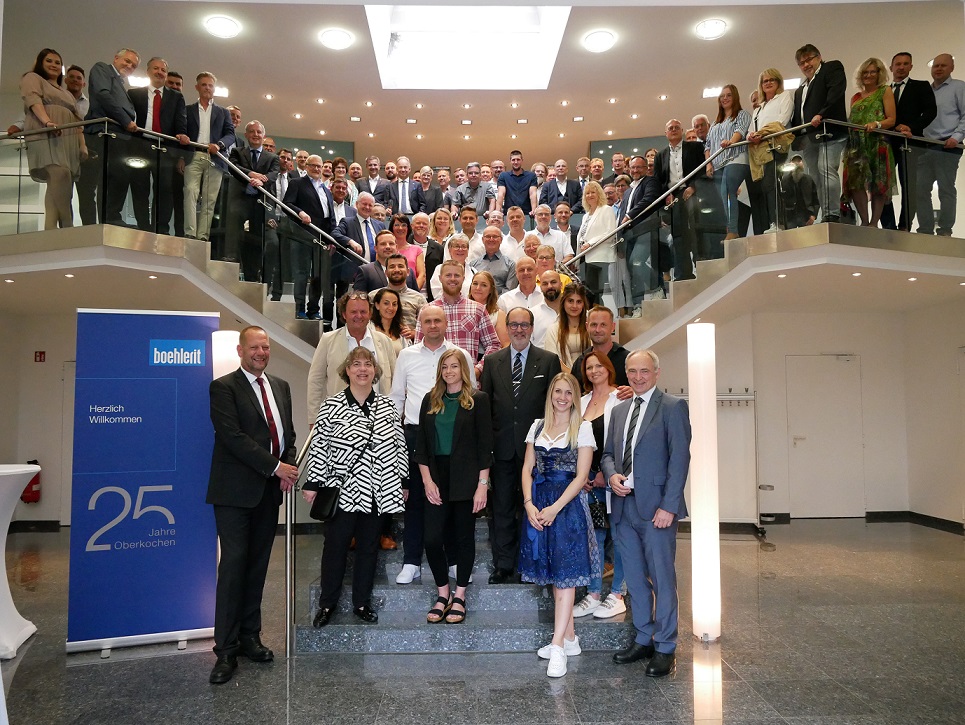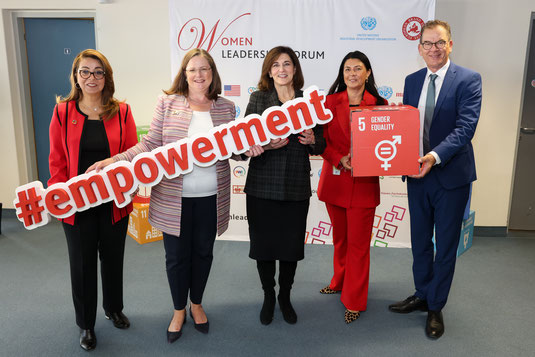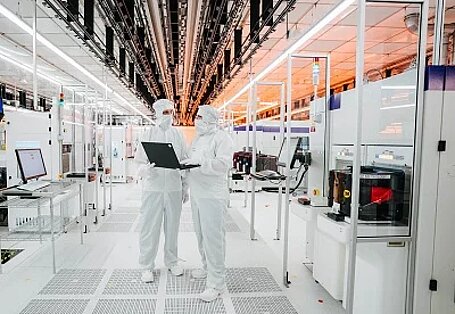Wolfgang Theiner, Managing Director of COSMO CONSULT GmbH, in conversation with Leitbetriebe Austria Managing Director Monica Rintersbacher about the change in the way we look at IT security, demand for cloud solutions and the need for well-trained employees.
Monica Rintersbacher: Mr Theiner, before we delve into the heart of the matter, please briefly introduce your company.
Wolfgang Theiner: My name is Wolfgang Theiner and I am a Managing Director at COSMO CONSULT GmbH, an IT company operating in the B2B environment. We have clients in various industries – from production and services through to retail. We are one of the largest Microsoft partners worldwide and we carry out a range of digitalisation projects for and with our clients. Our strength sometimes lies in the fact that we can implement end-to-end projects. If a client comes to us today and says that they would like to digitalise their company and processes, then we have a lot to offer – from Microsoft Office, Teams, ERP, CRM, business intelligence, data analytics, artificial intelligence and the internet of things through to classic management consultancy and change management. The last point in particular is becoming increasingly important and must not be neglected in any project. Otherwise, there is a risk that the employees say: Well, the new system is great, but I’ll continue working with Excel.
Monica Rintersbacher: There has been a tremendous boost in digitalisation as a result of the pandemic, especially for SMEs, ways of working have changed and security gaps often became visible. Are clients aware that digitalisation and security must go hand in hand?
Wolfgang Theiner: Absolutely. 70% of our clients are classic Austrian medium-sized businesses. Their challenge is very present and it is also getting bigger. As a result of advancing digitalisation, it is no longer as easy to deal with the topic of security as it was previously. At that time it was often the case that someone had the following opinion: My great niece’s nephew competed a WIFI course on the subject of security on the internet, he’ll do it. That may have worked ten years ago, but not anymore because nowadays an SME located somewhere in the left side valley is just as interesting to a hacker as a large corporation in Vienna. However, the large corporation is more difficult to attack than the small business next door. Many of our clients therefore take some of their business applications and transfer them to in the famous (infamous) cloud – this is the only genuine and correct way.
Microsoft has a huge team of specialists who deal with the subject of security 24 hours a day. Enormous sums and resources are currently being put into the development of data centres and appropriate security measures – an Austrian or German company cannot keep up with such investments – there is a lack of the corresponding competence and employees. You see, there are numerous components and points that speak for the cloud. Slowly we are also noticing that this permeates to our clients – this was not the case two years ago. The thinking back then: Please leave us in peace, our cellar offers more security than any cloud solution.
Monica Rintersbacher: When we talk about digitalisation, what topics are we talking specifically about?
Wolfgang Theiner: Digitalisation has become a (too) commonly used catchword. It basically involves sitting down, thinking through your own processes and asking yourself whether you want to continue working like this, as has been done for the past 20 years. Some companies also have to develop new business fields which can be addressed better by means of digitalisation. Completely new paths are also possible in individual business areas, for example in distribution – it is an exciting process for companies. However, digitalisation does not just mean new software. There’s a very famous saying by the CEO of Telefónica: The digitalisation of poor analogue processes results in poor digital processes.
Monica Rintersbacher: So the advantages lie in developing new business models and new products or even efficient ways of working in the company?
Wolfgang Theiner: Exactly, but it doesn’t mean that jobs will be destroyed, but rather that companies have the chance to find or retain really highly talented and highly paid workers which they can deploy better than before. For me, the worst example here is invoicing: There are still plenty of companies that type out invoices instead of automating this area. This is only a simple process, but that it precisely the meaning and purpose of digitalisation. You have to make much better use of well-paid workers and say goodbye to run-of-the-mill processes.
Monica Rintersbacher: Where is human control and intervention still needed in digitally optimised processes?
Wolfgang Theiner: With regard to processes such as document scanning, people are not needed anymore. Of course, you can still add a control mechanism by saying, for example, that an accountant should view it again or release it. However, software solutions are now actually able to reveal errors and tell the person: Look, that’s wrong. People are still required. But otherwise it is already the case – technologically speaking – that a lot can be done without the involvement of people.
Monica Rintersbacher: Companies will still require sufficiently well-trained staff in the future, right?
Wolfgang Theiner: Training will continue to be important; above all, people with special qualifications will be in demand.
Monica Rintersbacher: How is Austria positioned here? Are there many specialists?
Wolfgang Theiner: No, which is why specialists are still very much in demand and headhunted accordingly. For example, if you look at the location of Graz – the market there is very competitive. There are many large companies there, such as Magna, Anton Paar and Knapp, who are all after the same specialists.
Thank God, we are able to assign a very large number of jobs in Austria, yet many companies cannot find the right people on the market. Of course, we have educational establishments such as polytechnics, technical colleges and universities, which produce appropriate personnel – but it takes time until young employees are able to work independently.
Monica Rintersbacher: They all have their IT specialists. There seems to be a lot of competition.
Wolfgang Theiner: Certainly. We work closely with relevant technical colleges (e.g. FH Joanneum) and polytechnics (e.g. HTL Kaindorf) to draw attention to us early and attract the young professionals to us ahead of time. All businesses are hungry and looking for good people, there is a definite “war for talents”. As a company, one must consider the following: How do I distinguish myself from others? And above all: How do I communicate this to my target group?
Monica Rintersbacher: What is special about your company from your perspective? Why do employees opt for COSMO CONSULT?
Wolfgang Theiner: We are simply great (laughs). We will soon be awarded the certificate for “workplace health promotion” again. We also offer vouchers, e.g. for further training and health measures. We equipped a conference room with a table tennis table, which can be used by our employees to “clear their heads” and subsequently find better solutions to problems. We also developed a programme that allows our employees to work in other branches abroad and to combine this with private stays too. Since we operate internationally and have various locations as a company, there are plenty of opportunities. We offer people good opportunities for further development.
Monica Rintersbacher: You’re thinking ahead as a company here. People then come back with different expertise that they can put to good use?
Wolfgang Theiner: Our clients live by our knowledge, which is why we are strongly called upon to keep our knowledge up to date. We do projects like this every day, whereas our clients maybe once or twice in their professional life. We are therefore called upon: We have to bring knowledge and experience. A great deal of knowledge can be exchanged in this way, which is why I find our programme so exciting.
Monica Rintersbacher: What are the absolute key factors when it comes to why people opt for your company?
Wolfgang Theiner: Well, I don’t think it’s the table tennis table alone, that’s just a nice perk. This is a very complex question – the complete package is Important and decisive for me (monetary and non-monetary incentives). The IT sector is one of the most promising sectors that exists. Our company is currently experiencing enormous growth which we of course owe to our employees. This growth also has created new positions and jobs – we therefore open all development opportunities for you. If you are looking for a future-proof job in a unique team with lots of flexibility (keyword home office), then this is exactly the right place for you.
Payment is of course an important factor, but it is no longer solely decisive.
Monica Rintersbacher: This is a basic requirement.
Wolfgang Theiner: I don’t believe that you necessarily have to overwhelm employees with benefits – we also discuss this internally on a regular basis. The most important thing is to convey security – that is more valuable to me than trying to be “super fancy”. We don’t need slides to get from the first floor to the ground floor, as is often the case for US companies. This also does not correspond to our company’s DNA. We always make time for fun, even without slides – I am thinking here of various team outings and company events. Furthermore, we also have numerous international clients and projects – so if someone wishes to live abroad, this option is open to them.
Monica Rintersbacher: Are you able to find enough employees at the moment?
Wolfgang Theiner: We are currently on the serious lookout for people with B2B experience, preferably on Microsoft platforms. We’ll gladly take on junior staff, but we also need senior staff members so that the younger staff can lean on them. I am not doing a young person any favours if I bring them into a company where they don’t have anyone to take them by the hand and guide them because everyone is swamped with work.
Monica Rintersbacher: You have many long-term employees. What is the length of service here?
Wolfgang Theiner: We are proud to have employees who have been with us for 20 or 25 years – that cannot be taken for granted in IT. We’re probably doing one or two things right… Of course, long-term employees are of great importance to us – their expertise and experience is our greatest asset. We work with modern technologies, but this is a business based on trust.
Monica Rintersbacher: What do you wish for your company?
Wolfgang Theiner: I wish that Austrian companies will no longer have to jump through hoops or leave no stone unturned to find new employees. It would be nice if politicians would set up more initiatives and focus areas. I also don’t think it’s a good idea to start poaching each other’s people – that will only solve the problem in the short term. I think politics and business should work together and develop ideas on how to counteract this. I don’t have a miracle solution, but that would be my wish. It would be great if in a year’s time we can sit together and say: We have countless good applicants.
Monica Rintersbacher: Let’s remain confident. The order books are full and you are personally committed. You mentioned your wish that politics and business should work together and you make sure that you have good staff in the company and that your customers are satisfied. Many thanks for the interview!






